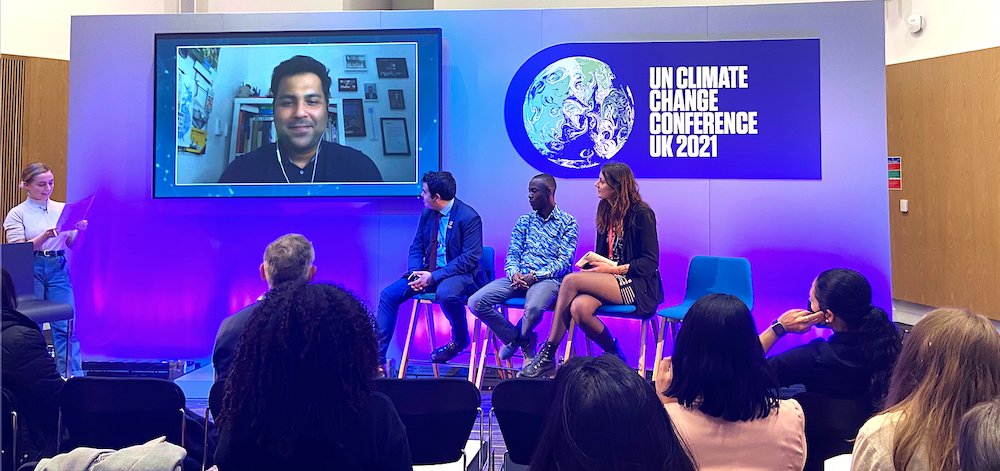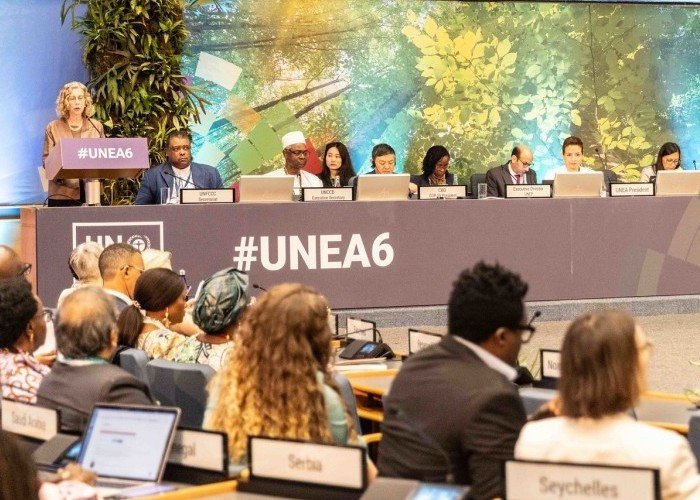Youth Climate Leaders Talk on Climate Intervention
In the immediate aftermath of COP26, it was easy to feel dismayed about the outcome. Across the news and social media, there was a tangible sense of anger by many at the shortcomings within the new agreement. Language on coal had been watered down; effective funding for loss and damage was still yet to be seen. The lack of ambition – and justice – was clear. But amongst this heavy disappointment, I came away from those two weeks with a renewed sense of hope and a new-found drive.
The reason for that is on 10th November, I led a youth dialogue on research in climate intervention during an event hosted by SilverLining, held in partnership with three incredible youth organisations – Arab Youth Climate Movement Qatar, Green Africa Youth Organization and Sustenta Honduras. The event was hybrid, taking place at the University of Strathclyde’s Technology & Innovation Centre, right in the middle of the hustle and bustle of COP26 events in Glasgow.
During the event, climate intervention scientists Sarah Doherty (USA) and Jessica Medrado (Brazil) first presented the science of their research and took thoughtful questions from audience members, moderated by my co-host Aarushi Shah (India). Their expertise laid the groundwork for the second session, where I moderated the youth dialogue with a panel of young climate leaders. Those leaders were from the event’s partner organisations – Neeshad Shafi (Qatar), Joshua Amponsem (Ghana) and Ricardo Pineda Guzman (Honduras) – plus Béatrice Coroenne (France), who heads the YOUNGO TechMech working group, and with whom SilverLining collaborated for the Safe Climate Youth Summit that took place back in June this year. They shared with us their motivations for joining the climate intervention conversation, their perspectives on the Youth Call to Action on Climate Intervention, and discussed with the audience and SilverLining’s Executive Director Kelly Wanser some of the most difficult and hairy questions within climate intervention research and policy.
It was during this second session that we saw why it is so necessary to hold these kinds of conversations. The stories Neeshad, Josh and Ricardo shared on the realities of living in climate-vulnerable nations painted heartbreakingly raw and real pictures. Their knowledge and experiences gave us a stark reminder of what so many people across the world are facing: disaster, uncertainty and no sign of any of this slowing down.
Crucially, though, what their stories and contributions also did was help us understand that the questions surrounding climate intervention are not a projection into the future, but are a matter of here and now. And because of that, this is not a subject that we can afford to simply side-line. We need answers, and we need them urgently.
Research on climate intervention is not about “what-ifs” in 20, 30, 40 years’ time. This research will help inform us how many lives could potentially be saved in the near-term. The lives of people here with us on Earth today, already struggling with the impacts of the climate crisis, already dealing with the grim prospect of an ever-more dangerous climate. Those people and their communities - from parts of the world like Neeshad’s, Josh’s and Ricardo’s - deserve the justice of having more options – options that research could help to provide, that go alongside carbon drawdown and mitigation. As Ricardo eloquently explained during the panel, it isn’t a question of deployment today or tomorrow; it’s a question of getting more solutions to the table. Even if we find that it isn’t an option in the end, then at least we put as much thought as we could into it. Otherwise – as Béatrice insightfully added – we may find ourselves in the position where we not only lack options, but also lack sufficient knowledge and mechanisms to make informed decisions about climate intervention.
This conversation also indicated that, despite the fact we have a long way to go before we have sufficient research on these potential options, finally the ball seems to be rolling. Young people, especially those from Global South countries, are increasingly shaping the dialogue – something which has been sorely lacking within this area of climate change so far. This is of paramount importance, as it is their families, friends and futures that are most at stake.
With every new young voice, with every new story, we are better navigating how best to move forward (and reminded that it is young people who are going to lead us out of this crisis). This has unmeasurable worth for the climate intervention dialogue, which we might only really begin to recognise in years to come. This gives me optimism as we look to the future.
I hope, sincerely, as we move into 2022 that this momentum keeps pace, with more young people bringing an even greater diversity of perspectives into the debate. So with that – I invite anyone who can to watch the recording of the Intergenerational Dialogue on Research in Climate Intervention themselves. I would also like to thank once again all of our panelists for such a rich and moving conversation throughout the event. Of course, I also welcome my fellow youth to get in touch if you too would like to join the dialogue. My inbox is always open!
Sign up to SilverLining’s youth bulletin
Email Maddy at mkschaffer@silverlining.ngo
Follow or tweet Maddy at @madeleine_ks
Follow or tweet SilverLining at @SilverLiningNGO




